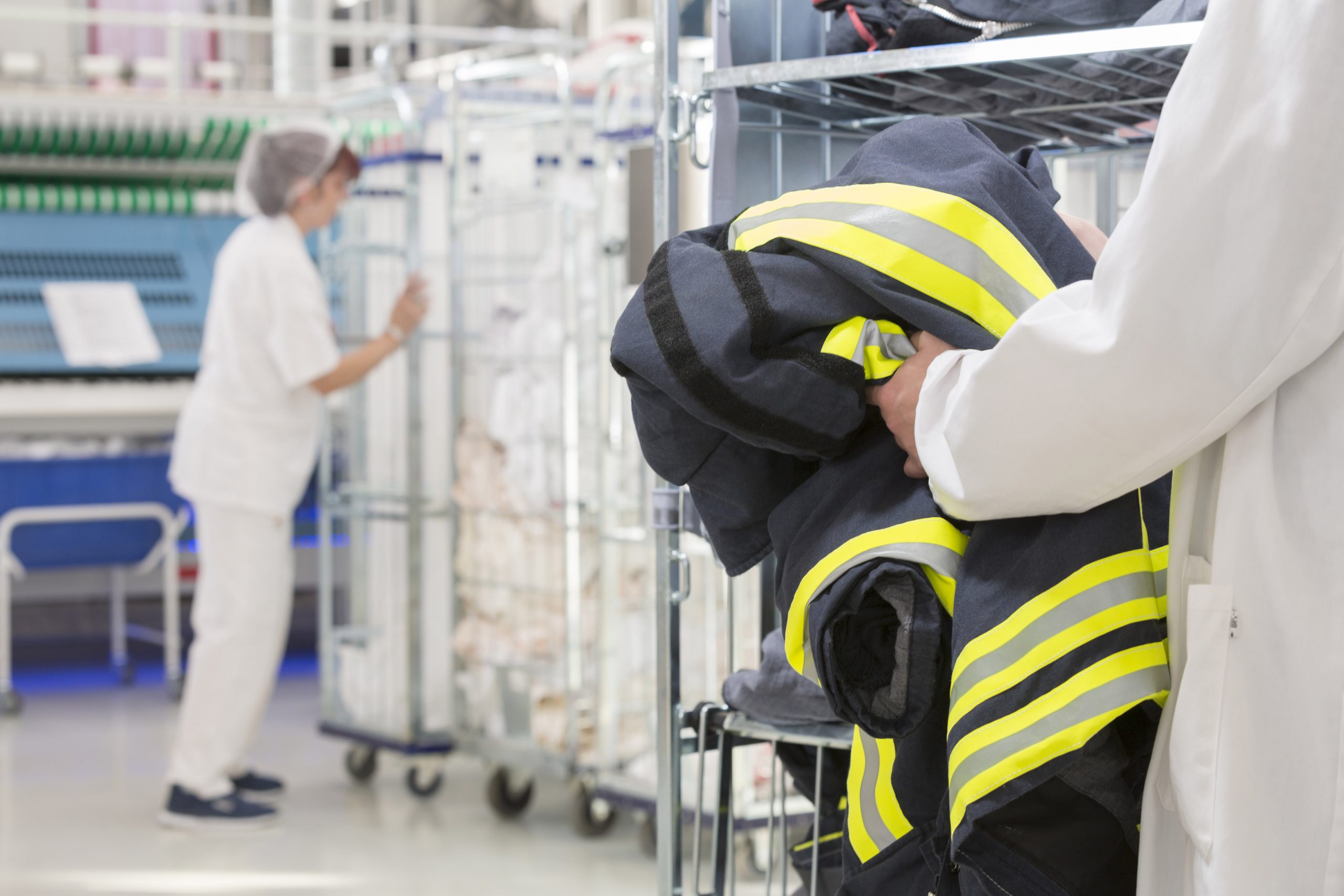TSA warns that UK workforce safety is compromised by poorly cared for PPE
The Textile Service Association (TSA) is warning that thousands of UK workers are at risk from inadequately cared for PPE (Personal Protective Equipment), because it’s being washed at home. It says that the care of textile-based PPE and workwear needs to be better understood, not only by employers but also by the workforce. Many employees in the UK are asked to maintain the protective clothing provided to them. This despite the fact that domestic washing machines are inadequate in terms of the controls needed to keep to the manufacturer’s requirements for maintaining the PPE.
TSA has had reports of some employers providing washing rooms for employees to maintain PPE, but again these lack the right processes and materials to effectively care for the articles. For example, the British Standard ISO 15797 specifies industrial PPE workwear washing and washing/drying parameters that align with the ISO 30023 qualification symbols for labelling workwear. Most people would have no understanding of this requirement.
“What’s important is that the PPE is cared for properly and that this care is logged for traceability and to manage its quality throughout its life,” says Shyju Skariah, technical services manager at the TSA.
BSIF (the British Safety Industry Federation) fully endorses the TSA’s arguments. ‘‘PPE is the last line of defence for a worker’s safety and health,” says Alan Murray, CEO of BSIF. “It must be maintained and cared for in line with manufacturer’s instructions to ensure that the garments retain their protective properties. The systems, engineering capabilities and quality assurance protocols within a specialist laundry are set up to do that, domestic laundering will not provide these controls.
“Furthermore, environmental considerations should be a high priority. Specialist laundries are required to have controls in place to ensure that the effluent from cleaning processes does not pollute the environment.‘’
Commercial laundries have been playing a central role for many industries to establish the effective quality management and traceability required to keep protective equipment fit for purpose. Sectors as varied as automotive and healthcare rely heavily on commercial laundries to look after their workers’ PPE. “Why? Not only because they know it’s the safest way, but also because it means the PPE lasts longer, to it protects their investment,” says Skariah.
The conditions required to care for the many different fabric and garment specifications need significant levels of fine tuning to get things right. PPE is worn to protect the user from various types and degrees of soiling – these need to be taken into account, too.
Commercial laundries calibrate chemicals and temperature conditions to handle varying levels of soiling. Surfactants, complexing agents, enzymes, chelating agents, foam inhibitors and several other chemical components are introduced to reduce the surface tension and thoroughly wet the textiles, to manage water hardness, to remove protein stains, to remove heavy metals… and there are many other processes. Laundries also use specialised systems compatible with the demands of PPE, such as effective, gentler alkalinity systems that achieve excellent results at lower pH levels and lower temperatures.
TSA warns that disposable PPE does not provide a sustainable answer to the issue. Predominantly used in healthcare, it is incredibly wasteful. For example, a reusable gown used to protect healthcare frontline workers can be hygienically washed and reused around 75 times – and at end of life it may be recycled. A single-use PPE gown gets used once and then becomes clinical waste that requires specialist disposal.
“Employers need to carefully consider how they can ensure that their workforce’s protective equipment is competently maintained, to the manufacturer’s specification,” says Skariah. “We need to ensure people using PPE are safe. The UK’s workforce deserve to be protected.”
The TSA is the trade association for the textile care services industry. The TSA represents commercial laundry and textile rental businesses. Membership ranges from family-run operations through to large, multi-national companies. Visit www.tsa-uk.org for more information.

